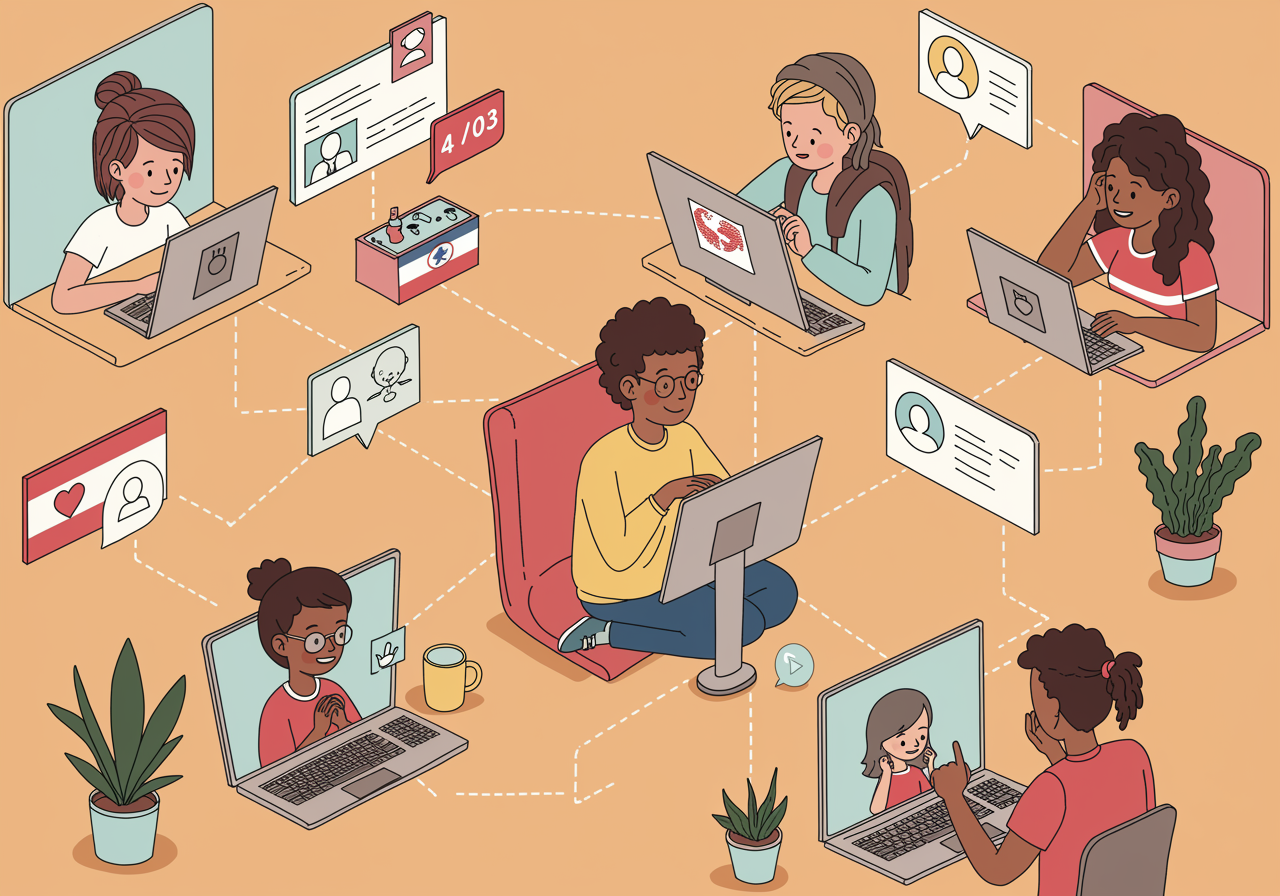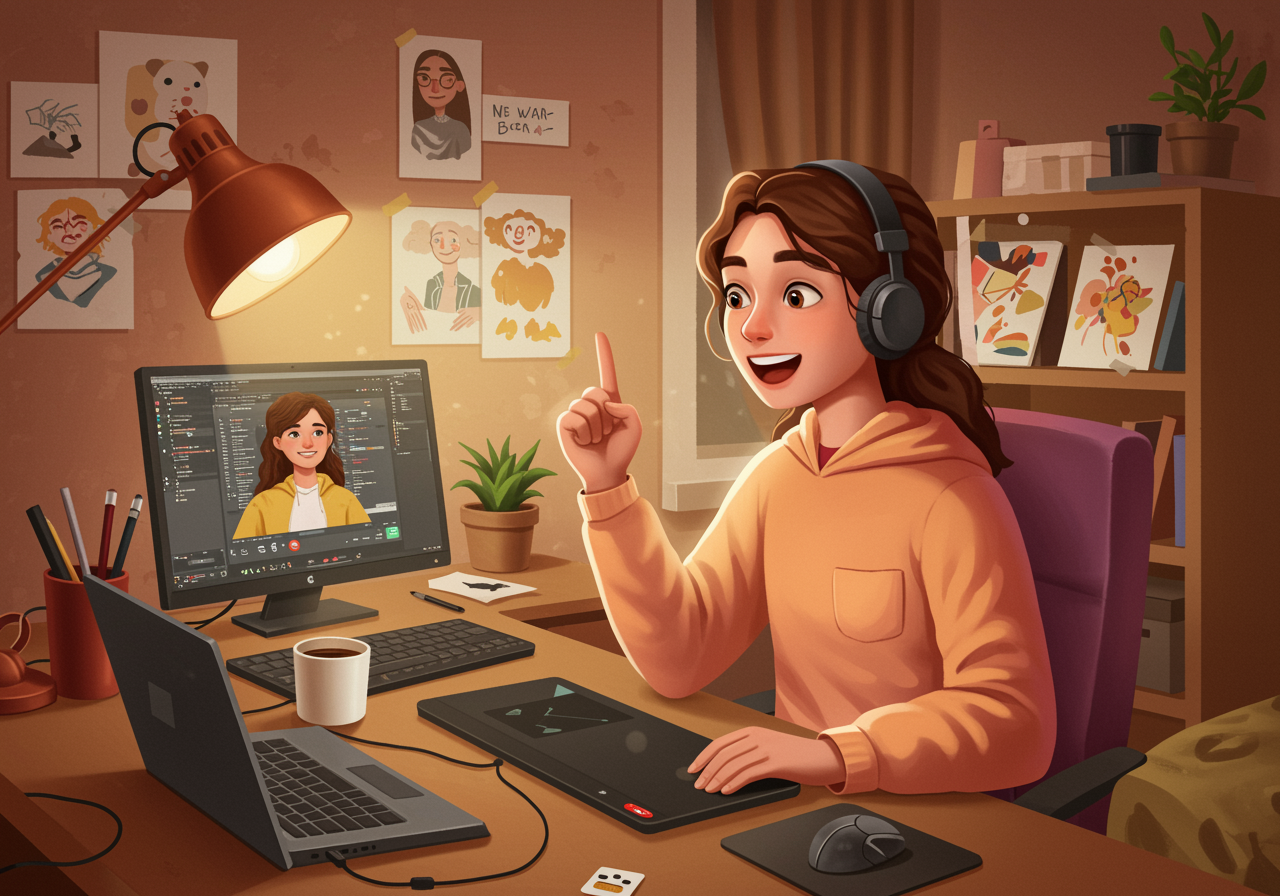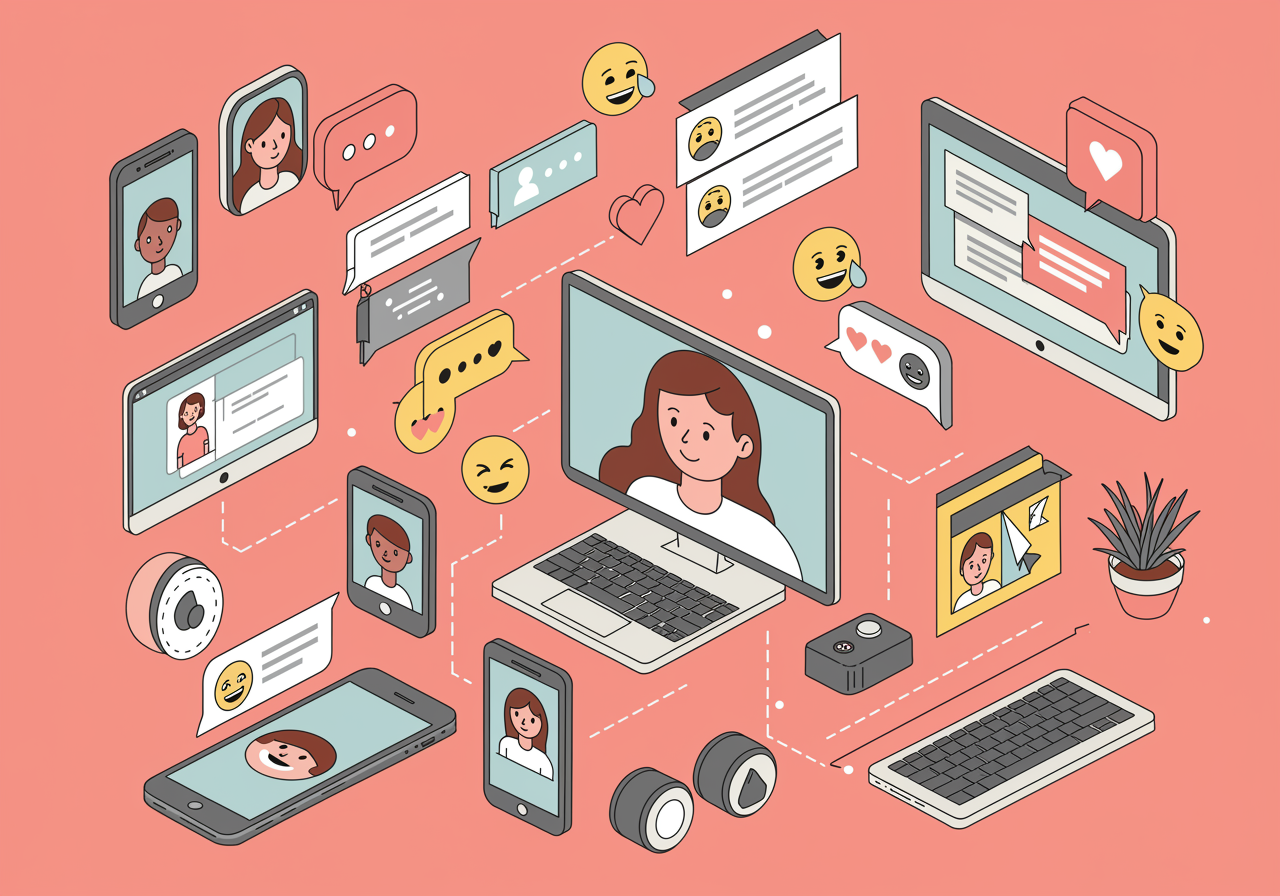Friends, Followers, and Digital Villages: The Social Media Friendship Revolution

Discover how apps and algorithms are rewiring the way we connect, belong, and build communities
Dive into the fascinating world of digital friendships and explore how social media is reshaping the way young people connect, share, and create communities in ways that would blow the minds of previous generations.
Overview
Think about it: your teenager might have friends they've never met in person, belong to communities that span continents, and maintain dozens of relationships through screens. Social media hasn't just changed how we communicate—it's completely revolutionized what friendship and community even mean. Understanding this digital transformation helps parents and teens navigate this new social landscape together, celebrating the incredible connections possible while staying aware of the challenges. This isn't about whether social media is 'good' or 'bad'—it's about understanding how it works so we can use it thoughtfully and build meaningful relationships both online and offline.

Understand in 30 Seconds
Get up to speed quickly
- Global Friendships: Social media lets teens connect with people worldwide who share their interests, creating friendships that geography could never allow before.
- Always-On Connection: Unlike past generations who lost touch after moving, today's friendships can continue 24/7 through messages, posts, and video calls.
- Algorithm Communities: Apps use smart technology to group people with similar interests, creating instant communities around everything from art to activism.
- New Social Rules: Digital friendships have different rules—like how many likes show support, what sharing means, and how to handle conflicts through screens.
Real Life Scenario
Situations you can relate to
Imagine your teen comes home excited about their new friend Sam who lives in Australia, shares their love of digital art, and stays up late to video chat despite the time difference. They've never met in person, but they collaborate on projects, support each other through tough times, and feel genuinely close. Meanwhile, they barely talk to their neighbor who sits next to them in math class. Is Sam a 'real' friend? How do we measure the value of relationships that exist primarily through screens? This scenario perfectly captures how social media creates connections that bypass traditional barriers like distance, age, and even language, while sometimes making us feel disconnected from people right next to us.

Role Play
Spark a conversation with “what if” scenarios
What if you had to explain to your grandparent how you can be 'best friends' with someone you've never hugged?
- Role play: Take turns being the grandparent and the teen, exploring how to describe the depth and meaning of online friendships to someone from a different generation.
What if your online gaming team, who you've played with for two years, wants to meet up in person?
- Role play: Role-play the conversation about safety, expectations, and how online relationships translate to real-world meetings.
What if your friend group splits into two camps over a social media post, and you're caught in the middle?
- Role play: Practice navigating digital drama, discussing how conflict resolution works differently online versus face-to-face.
FAQs
Frequently asked questions people want to know
Are online friends 'real' friends?
Absolutely! Real friendship is about trust, support, and genuine care—not physical proximity. Many online friendships are as meaningful as in-person ones.
Why do I feel lonely even with hundreds of followers?
Followers aren't the same as friends. True connection comes from quality relationships where people really know and support you, not just like your posts.
How do I know if someone online is really who they say they are?
Look for consistency over time, mutual friends, and be cautious about sharing personal information. Trust your instincts and talk to trusted adults about any concerns.
Examples in the Wild
See how this works day to day
- Discord servers bring together millions of gamers who form lasting friendships and support networks, with some online friends becoming real-life wedding parties (Pew Research Center 2022 Teen Social Media Study)
- TikTok's algorithm helped isolated LGBTQ+ teens find supportive communities and friends who understand their experiences during the pandemic (Journal of Adolescent Health 2023)
- Reddit communities like r/TeenSupport provide 24/7 peer counseling and friendship for teenagers dealing with mental health challenges (American Psychological Association 2023)
- Minecraft servers have become virtual neighborhoods where kids build lasting friendships while creating digital worlds together (MIT Technology Review 2023)
In Summary
What you should know before you start
- Social media creates friendship opportunities that transcend geography, age, and traditional social barriers
- Quality matters more than quantity—meaningful connections beat follower counts every time
- Digital relationships require new skills like reading tone through text and managing screen-time boundaries
- The healthiest approach combines online and offline friendships, using each to enhance the other
Pro-tip for Parents
You got this!
When your teen talks about their online friends, resist the urge to immediately worry or dismiss these relationships. Instead, show genuine curiosity by asking about what they do together, what they talk about, and why these friendships matter to them. This opens the door for natural conversations about online safety, healthy boundaries, and the difference between surface-level and deep connections. Remember: your teen is learning to navigate a social world that didn't exist when you were their age, so approach it as a learning adventure you can explore together.

Keep an Eye Out For
Find these examples in everyday life
- News stories about positive online communities helping teens through challenges like mental health or social isolation
- Examples of online friends meeting in real life safely and successfully, or virtual events bringing digital communities together
- Discussions about new social media features that change how people connect, like voice chat rooms or collaborative spaces
Explore Beyond
Look up these related research topics
- How algorithms decide what content and people we see, and how this shapes our worldview
- Digital citizenship and being a good online community member
- The psychology of social media: why we seek likes, shares, and online validation